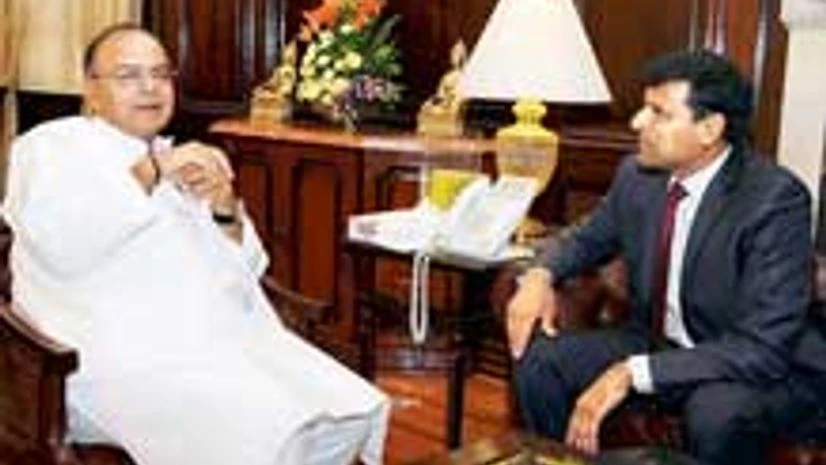While the financial markets are celebrating a surprise interest rate reduction by the Reserve Bank of India (RBI) today, the central bank has now put the ball on government’s court for future action on interest rates. While a rate cut was widely expected, the timing was surprising as today’s 25 bps rate cut is the first out of policy review reduction since 2008-09.
In particular, the government’s intention to adhere to the fiscal consolidation path that was chalked out in the interim budget of 2014, will be on the radar.
“...Also critical would be sustained high quality fiscal consolidation as well as steps to overcome supply constraints and assure availability of key inputs such as power, land, minerals and infrastructure,” RBI said in the context to drivers for further easing of policy rates.
While the government is likely to contain fiscal deficit at 4.1 per cent of GDP for the current financial year, but the target for the next year at 3.6 per cent could be challenging. According to the medium term fiscal consolidation roadmap presented in the interim budget, fiscal deficit target for 2016-17 is 3 per cent.
Also Read
The task to adhere to the fiscal roadmap could be difficult if the government believes that it will need to beef up public investment to spur economic growth as private sector investments are still sluggish.
The recent mid-year economic analysis for 2014-15, put together by economic advisors in the finance ministry, talked about beefing up public investment for economic revival.
Apart from fiscal consolidation, the government’s efforts to ease supply side bottlenecks during the budget is also one area which RBI will closely look at.
RBI has said availability of key inputs like power and land will be needed to ensure that potential output rises above the projected pick-up in growth in coming quarters so as to contain inflation.
The other area that the central bank would be expecting from the budget is the formation of a new monetary policy framework, in line with the recommendations of the Urjit Patel committee, which was formed to revise and strengthen the monetary policy. The Patel committee had suggested inflation targeting should be explicit mandate of RBI and setting up of a monetary policy committee which will be accountable for inflation control.
It is up to New Delhi now to provide more ‘room’ for further easing of monetary policy stance.
Manojit Saha is banking editor, Business Standard
Manojit Saha is banking editor, Business Standard

)
